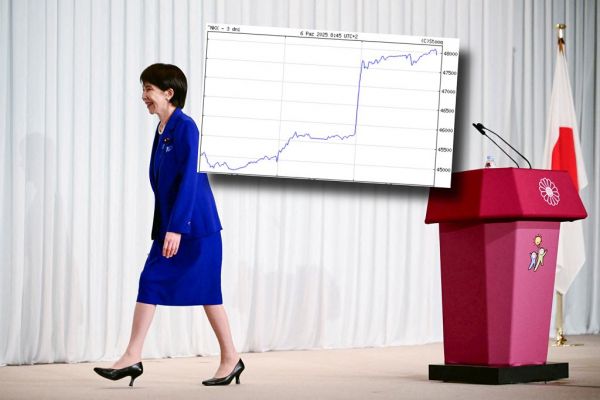Japan may be taking a new course of economic policy. A reshuffle in the government is just around the corner, and the politician who will take over the post of prime minister has very firm economic views. Investors have already reacted to the new situation, as reported by the publication Profit.Ro .
Tokyo Nikkei 225, the main index of the Japanese Stock Exchange, soared by a staggering 4.75%. It was a historic day for one of the oldest indices in the world (it has been measuring Japanese stock prices since 1914), as the indicator exceeded 47,000 points for the first time in history. It ended the day at 47,944 points.
Moreover, it was the 101st largest increase in the index. Stocks in the real estate, technology and heavy industry sectors especially rose. The leader of the growth was the technology giant Hitachi, whose shares increased by more than 10%. And the political changes in the country have fueled enthusiasm for The Japanese Stock Exchange.
64-year-old Sanae Takaichi was elected leader of the ruling Liberal Democratic Party of Japan last weekend, which opened the way for her to be elected prime minister of the new government. If approved, she will become the first woman in the history of the country to hold this post. Her election caused the rapid growth of Japanese stocks.
Sanae Takaichi is often compared to Margaret Thatcher. She once stated that she wanted to become the “iron lady of Japan,” which also emphasizes the views of the new Prime Minister of Japan on the economy.
“Let’s make Japan stronger and richer so that we can pass this on to future generations,” Takaichi said earlier.
However, she differs from the British Prime Minister in that she wants to emphasize the influence of the state on the economy, and not, like Thatcher, focuses on the free market.
“Takaichi is perceived as a supporter of a return to abenomics, which implies easing fiscal rules and supporting the economy by lowering taxes and increasing investment spending. She also does not support the idea of a rapid rate hike by the Bank of Japan. It seems that the topic is being postponed to the first quarter of 2026, which may be a reason to continue the weakening of the yen that has begun in the medium term,” said Marek Rogalski, chief currency analyst at DM BOŚ





